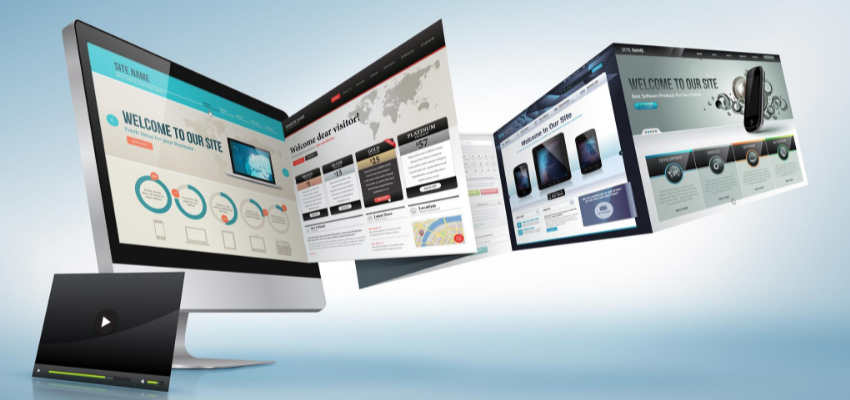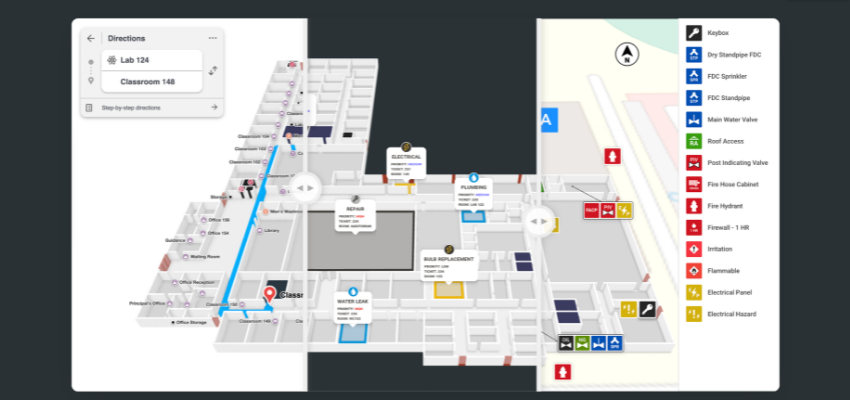Show:
Website Builders vs. Custom Web Development: Which is Right for Your Startup?
Building a website is one of the most important steps you can take as a new business. And when it comes to startup websites, there are two main options to consider:
Custom web development and website builders.

Both of these approaches have their own pros and cons, and the choice between the two ultimately depends on the specific needs and resources of your startup. In this blog post, we’ll unpack the strengths and weaknesses of each option in order to help you make the best decision possible for your young brand.
What Is Custom Web Development?
Custom web development involves the creation of a website from scratch by a professional website designer or design team. They are tailored to the specific requirements and objectives of their clients. This creates a much more succinct and high-level website result.
Custom web development offers seamless flexibility, scalability, and the potential for uniqueness. You, as the client, can be afforded complete control over the design, functionality, and user experience of your website, as per the expertise of your designers.
Web developers can create a fully customized and immersive digital presence for your startup that aligns perfectly with your brand tone, purpose, and identity. Custom development also allows for smooth integration with external systems, such as CRM platforms, social media accounts, and inventory management systems, allowing startups to optimize their operations.
In addition to this, custom web development creates the opportunity for growth and expansion—both now and in the future. As startups evolve, their websites may need to change. Custom development can accommodate that need much more easily than website builders can.
Through a custom-built design, startups can incorporate new technologies, integrate third-party systems, and even implement advanced analytics to gain insights into business growth.
However, custom web development does come with its fallibilities. First, it requires a significantly larger investment of time, money, and general resources. Hiring professional developers or agencies can be expensive, especially for young startups with limited budgets.
Furthermore, the development process itself can be time-consuming and requires creative direction. The design team will need direction and brand strategy to inform their planning, design iterations, and testing approach.
Startups also either need to have an in-house development team or outsource the work to experienced professionals, which can be a complex and frustrating process. Lack of technical expertise or choosing inexperienced developers can result in delays, insufficient performance, and at worst, project failure.
Ultimately, the pros and cons of hiring a custom website developer for your startup include:
Pros
- Creative control
- Seamless brand alignment
- Professional and unique-looking website
- Better functionality and usability
- Less effort for your startup
Cons
- Can be costly
- Requires creative direction and expertise
- Time consuming to create
If your startup is one of the few that has access to a large budget, opting for a custom website design is a good idea. However, if you lack the ability to communicate your vision or have limited time and resources, custom web development may be unwise.

What Are Website Builders?
Sometimes known as website platforms or content management systems (CMS), website builders are tools that allow users to create websites without the need for coding skills or expertise. These platforms typically offer basic, easy-to-use templates, drag-and-drop edit functions, and simple interfaces, thus making it easy for anyone to build their website fast.
Some popular website builder examples include:
- Wix
- Squarespace
- Typeform
- Weebly
- WordPress
- Drupal
There are many advantages to using a website builder. One of them is their innate simplicity and user-friendliness. They tend to feature extremely intuitive interfaces that equip startups to both create and update their websites with ease, all without requiring extensive technical knowledge or outsourcing a professional developer. You’ll also find a range of options to suit every industry and sector. Whether you need a real estate website builder, one that works best for an IT business, or suits an ecommerce brand, the chances are, it’s available online.
Website builders offer a wide range of pre-designed templates and typography options, enabling startups to choose a visually appealing layout that aligns with their overall brand image. There are also templates that are pre-designed to suit every industry and sector.
Furthermore, website builders are generally much more affordable than custom web development options. If they’re not completely free, most of these platforms operate on a simple subscription model, offering different cost tiers to accommodate different budgets and briefs.
These plans usually include web hosting and maintenance perks, thereby eliminating the need for startups to manage these aspects separately; something which can be stressful for newly established businesses who only have access to limited resources. Additionally, website builders frequently come with handy built-in features that can be beneficial for startups, such as e-commerce functionality, blog platforms, SEO tools, and social media extensions.
However, website builders do have some limitations. While they may provide a certain level of customization through templates, startups may find it challenging to achieve a wholly unique design. This can result in websites that fail to stand out in a competitive market.
Ultimately, the pros and cons of website builders for startups are as follows:
Pros
- Accessible
- Doesn’t require design or development experience
- Cost-effective
- Easy to navigate and operate
- Easy to integrate into other platforms
Cons
- Limited customization options
- Prevents startup from standing out
- May not meet industry standards
If your startup is in a highly specialized or competitive industry, it might not be the best idea to opt for a website builder. However, if you are looking for something simple, affordable, and easy to operate, this type of website template is likely perfect for you.
Conclusion
In conclusion, the choice between website builders and custom web development for startups depends greatly on numerous factors.
Where website builders offer simplicity, cost-effectiveness, and an extremely quick setup, making them suitable for operation on limited resources can be very challenging. For this reason, they are best suited to small-scale, low-budget startups that don’t mind putting in some elbow grease to make things work until a stronger business position is established.
Custom web development, on the other hand, offers more in terms of design excellence, integration, optimization, and brand consistency—for a price. It is best suited to startups with a bit more experience and financial support.
Ultimately, startups should evaluate their specific needs, budget, technical expertise, and long-term goals before making a decision.

 Return to Previous Page
Return to Previous Page








